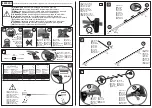
Your Honda operates most effectively on unleaded gasoline with a pump
octane number of 86 or higher. Use of a lower octane gasoline can cause
a persistent, heavy metallic rapping noise in the engine that can lead to
mechanical damage.
We recommend gasolines containing detergent additives that help
prevent fuel system and engine deposits.
Using gasoline containing lead will damage your car's emission controls.
This contributes to air pollution and can void certain parts of your
warranty.
Oxygenated Fuels
Some conventional gasolines are being blended with alcohol or an ether
compound. These gasolines are collectively referred to as oxygenated
fuels. To meet clean air standards, some areas of the United States and
Canada use oxygenated fuels to help reduce emissions.
If you use an oxygenated fuel, be sure it is unleaded and meets the
minimum octane rating requirement.
Before using an oxygenated fuel, try to confirm the fuel's contents. Some
states/provinces require this information to be posted on the pump.
The following are the EPA-approved percentages of oxygenates:
ETHANOL (ethyl or grain alcohol) - You may use gasoline containing up
to 10% ethanol by volume. Gasoline containing ethanol may be marketed
under the name "Gasohol."
MTBE (Methyl Tertiary Butyl Ether) - You may use gasoline containing
up to 15% MTBE by volume.
METHANOL (methyl or wood alcohol) - You may use gasoline containing
up to 5% methanol by volume as long as it also contains cosolvents and
corrosion inhibitors to protect the fuel system. Gasoline containing more
than 5% methanol by volume may cause starting and/or performance
problems. It may also damage metal, rubber, and plastic parts of your fuel
system.
If you notice any undesirable operating symptoms, try another service
station or switch to another brand of gasoline.
Fuel system damage or performance problems resulting from the use of
an oxygenated fuel containing more than the percentages of oxygenates
given above are not covered under warranty.
Gasoline
















































